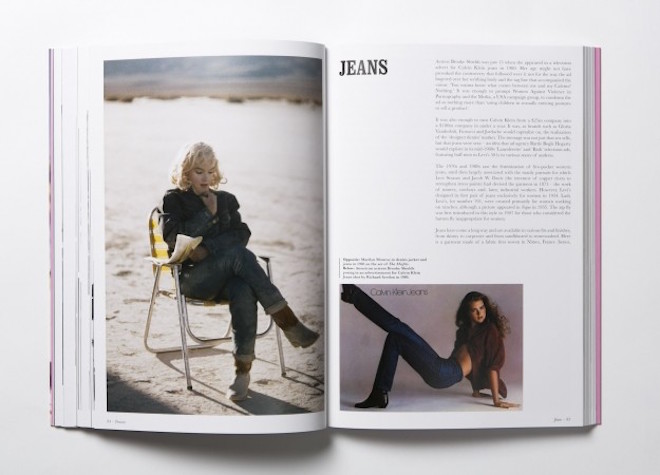
05.06.2015 | Literature | BY: admin
When it comes to column inches and tabloid notoriety the Kardashians have got nothing on the Mitford sisters. These charismatic socialites dominated the headlines of the ’20s and ’30s with their exploits, and perhaps the most controversial and complex of the siblings was Diana, hailed, incredibly, as both the most beautiful and the most hated woman of her day. After a spectacular launch into society as the teenage debutante who bagged the dashing and fabulously wealthy Bryan Guinness, she scandalised her set by becoming the mistress of Oswald Mosley, the leader of the British Union of Fascists. It’s a story that has been told countless times from every possible angle, including in Diana’s own memoir, The Pursuit of Laughter, but the story can stand another retelling because the woman at the heart of it remains an enigma, her actions impossible to fathom.
In Mrs Guinness: The Rise and Fall of Diana Mitford, the Thirties Socialite (The History Press, £17.99), Lyndsy Spence paints a compelling portrait of a woman with the capacity for passionate love and loyalty, but who was equally capable of closing her mind to the nastier implications of such deep devotion. Through unpublished letters and diaries she goes back through Diana’s childhood, teenage years and first marriage in an effort to understand how she became the woman she did. The composite portrait that she has pieced together may be as close as we will ever get to understanding the mystery that is Diana Mitford.
Smoke Gets in Your Eyes – And Other Lessons from the Crematorium (Canongate, £12.99) is a highly unusual memoir by mortician Caitlin Doughty who’s passionate about demystifying death. She is a twentysomething woman with an impeccable fringe who has got funeral ash under her nails and doesn’t mind explaining how it got there. Smoke is her manifesto for how to live – and die – better, a memoir of her own coming-to-terms-with mortality and a deconstruction of the mostly quite appalling death industry. Caitlin, with her no-nonsense style and absolute single-mindedness plus a healthy dose of goth sensibility, bravely shows that death is nothing to be afraid of.
The Green Road (Jonathan Cape, £16.99) is a return to form for 2007 Booker winner Anne Enright who was named Ireland’s first fiction laureate in January. Set in pre-recession Ireland where there’s abundant optimism and bundles of euros, Enright is free to explore the idea of family without having to negotiate the country’s current economic doldrums.
Rosaleen Madigan wants to sell up her homestead and split the money between her grown-up children: two sons, two daughters. The road of the title leads the characters back home for Christmas to hear about their mother’s plans. It’s also a reference to how they have each escaped, whether to Toronto, or Timbuktu, or just up the road to Dublin. This is a familiar Irish narrative where siblings have fled the homeland for better lives and opportunities, but each of their homecomings will chime with readers. Familial disappointments, anxieties, failures, rivalries and questions around belonging are all delicately handled and Enright’s writing has an easy poetry, ‘Beauty, in glimpses and flashes, that is what the soul required. That was the drop of water on the tongue.’
Glossy book of the month: In Icons of Women’s Style (Laurence King, £19.95), Josh Sims introduces the essential pieces that make up the clothing canon. An essay accompanied by some fine fashion photography explains why each those perennial classics – including capri pants, A-line dresses, Breton tops – are always in style.
Anna-Marie Fitzgerald and Phoebe Frangoul are the co-editors and co-founders of the London grrrl-zine and literary salon Pamflet. Follow them on Twitter and Instagram @Pamflet.
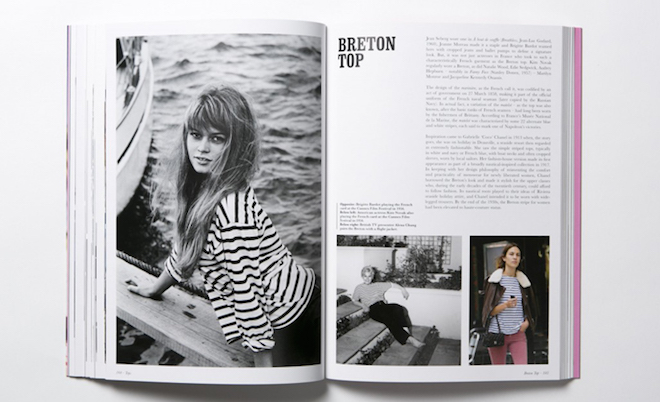
Images from Icons of Women’s Style
Tags: literature, Pamflet
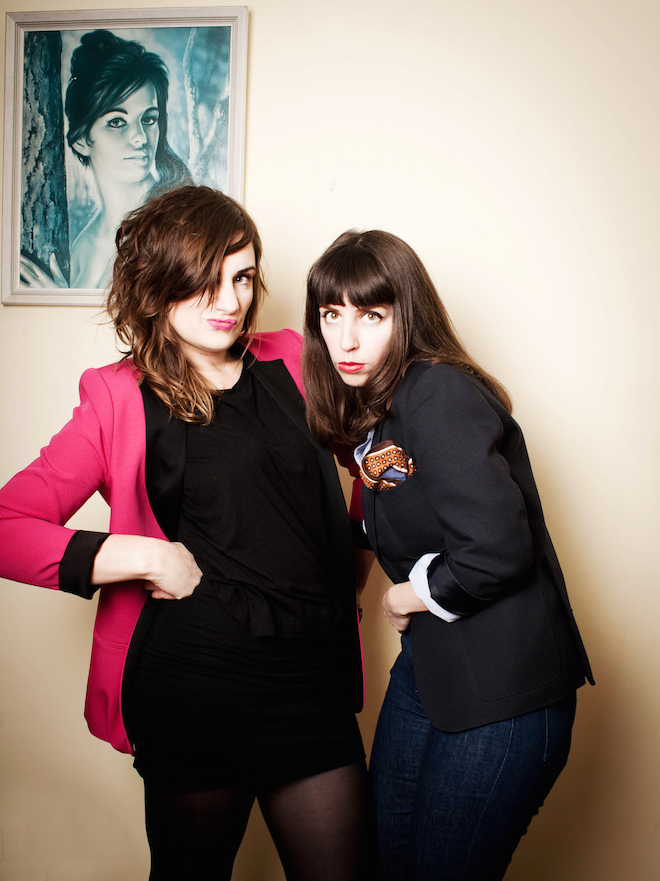
23.04.2015 | Culture , Literature | BY: Mariella Agapiou
Twin contributors and Pamflet founders, Phoebe Frangoul and Anna-Marie Fitzgerald, are about to launch the thirteenth issue of their post-everything, satirical girl culture zine. It’s been four years since a printed edition has been released, but their back with 40+ pages of pure London grrrl culture.
To celebrate Phoebe and Anna-Marie will be at The Trouble Club on Monday 27th April, where there will be free-flowing wine, music and zines for all.
Get tickets to the launch of Pamflet 13: Absent in the Spring here.
pamflet.co.uk
Tags: Anna-Marie Fitzgerald, Pamflet, Phoebe Frangoul
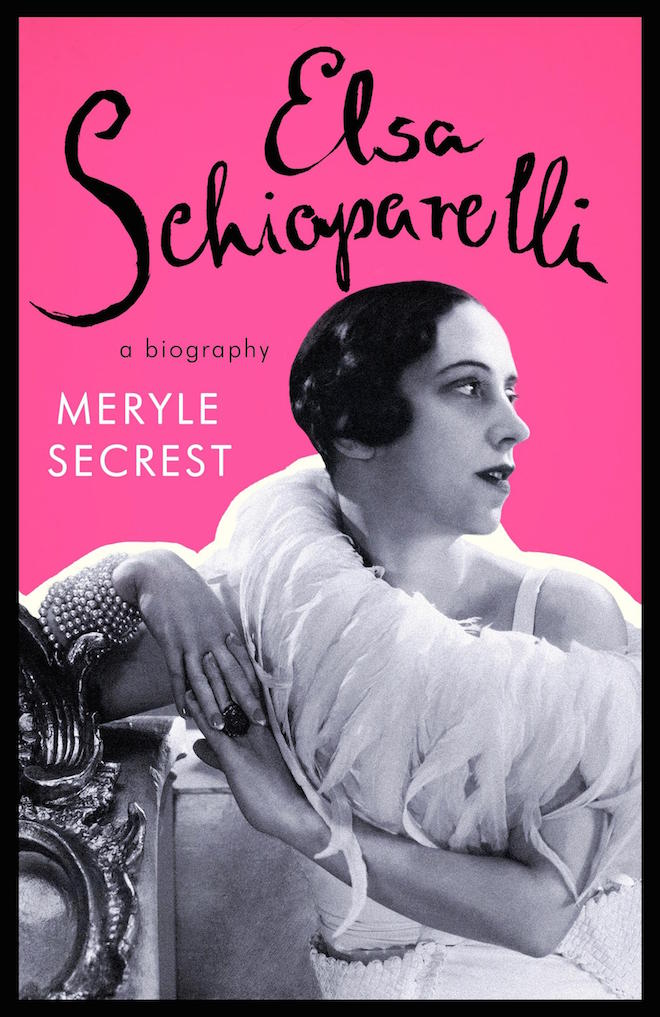
05.02.2015 | Literature | BY: admin
It sometimes feels as if London lags a little behind other great cities like New York and Paris when it comes to the way it’s depicted in pop culture – somehow the gritty glamour of our beloved capital doesn’t necessarily translate well to page or screen. But Jason Brooks’ beautiful London Sketchbook (Laurence King, £19.95) is a fitting tribute, something to treasure and leaf through on bleak January afternoons. You will recognise Brooks’ distinctive fashion illustrations from posters and the pages of Vogue and Elle, but with London as his muse he has really let his imagination and talent run riot, creating thoughtful, elegant drawings that truly capture the spirit of the city.
The book is divided into themed chapters such as ‘the street’, ‘London by night’ and ‘fashion’ so you can flip straight to your subject of choice. Brooks mixes collage, speedy, sparse pen and ink sketches, crisp, precise architectural drawings, quotations from the likes of Virginia Woolf and Disraeli and facts and anecdotes to evoke a very personal vision of his city which is by turns moving, witty and educational. If you’re tired of London, this ravishing visual feast will inspire you to put up your brolly and hit the rainy pavements to fall in love with the city all over again.
Josa Young’s second novel, Sail Upon the Land (Keyes Ink, £8.99) is a moving, richly told story about motherhood in all its forms and how this role can encompass earth-shattering love and terrifying ambivalence. Spanning several generations and jumping between the English countryside, London and India, the narrative is complex but satisfying, weaving together different strands from a cast of well-observed characters.
The life of a deb in swinging ‘60s London is vividly brought to life with humour and a sharp eye for detail, but it’s the descriptions of mothers – both biological and otherwise – that are almost painful in their realism. The complicated relationship between daughter and mother is depicted with brutal honesty and from multiple perspectives, as each woman moves from one role to the next. The heroine, Damson, is a sympathetic, complex character who you will find yourself thinking about long after finishing this thoughtful, thought-provoking novel.
Elsa Schiaparelli: A Biography by Meryle Secrest (Fig Tree, £25) this new biography tells the story of one of fashion’s true originals whose costumes now hang in galleries rather than wardrobes. In her 1920s and 1930s haute couture heyday, Italian-born French designer Schiap (1890-1973) dressed film stars and socialites and enjoyed a personal life that was almost as dramatic as her impact on the fashions of the time.
Secrest’s biography is wonderfully gossipy and the best sections are where she explains how and why Schiap’s style was so unique and the genius behind her approach to fashion business as well as design. She excelled at creating and perpetuating her own myths, living in gloriously eccentric apartments, appearing at all the most-talked-about parties and surrounding herself with a talented team. She conjured up a kind of magic around her creations and her persona and built up this mystique with the help of a series of dazzling collaborators, including (most famously) Dalí. But although she took her work very seriously, she didn’t mind that her clothes were enthusiastically copied by dressmakers at home – she liked being popular.
And who could resist her madcap style (she even sold a hat called the Mad Cap)? This personal myth-making means that many facts that a biographer might need to tell the full story have been obscured by Schiap’s own efforts over the years, but what is clear is her timeless style legacy. The ‘nonchalant chic’ of her early years – technically impressive sporty garments, wrap dresses, bloomers – inspired by the leisure habits of her fabulous and wealthy milieu continues to influence designers today.
Anna-Marie Fitzgerald and Phoebe Frangoul are the co-editors and co-founders of the London grrrl-zine and literary salon Pamflet. Follow them on Twitter and Instagram @Pamflet.
Tags: Pamflet
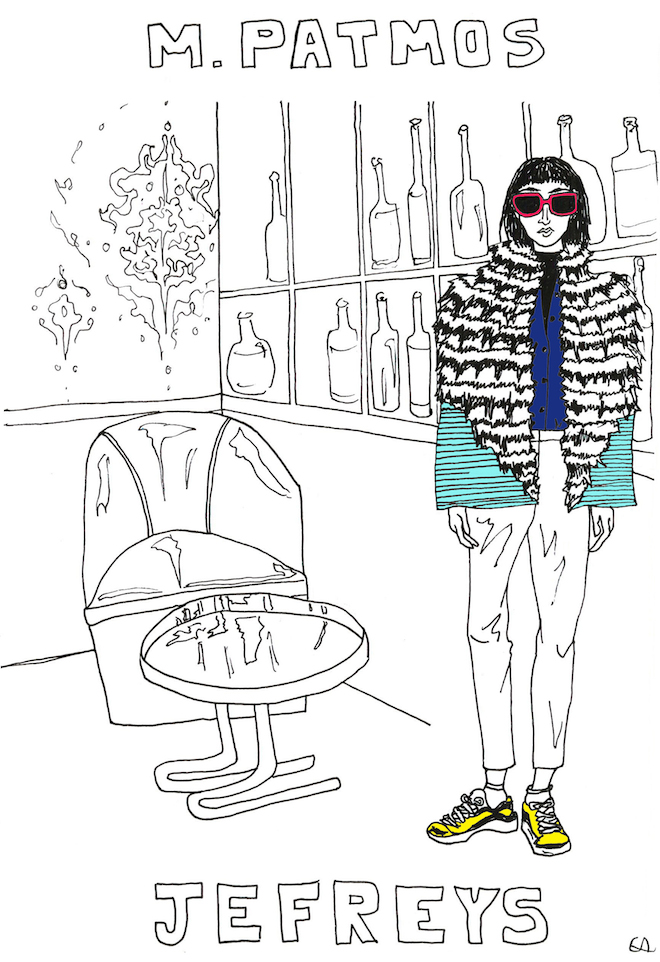
13.08.2014 | Literature | BY: admin
Anna-Marie Fitzgerald and Phoebe Frangoul are the co-editors and co-founders of the London grrrl-zine and literary salon Pamflet. Here they discuss the releases, trends and going’s on in the literary world worth knowing about. Follow them on Twitter and Instagram @Pamflet.
Pamflet stay close to home with summer reads set around London, Cambridgeshire and Bristol…
Low Expectations by Elizabeth Aaron (Quercus, £6.99) is proper summer froth to enjoy while supping on a plastic tumbler of home-prepped sangria in Victoria Park. Loosely plotted around the final year of university student Georgie’s fashion degree, we join her as she marauds around east London with her two best friends Rose and Sarah never quite knowing where she’s going. Low Expectations is full of observational comedy and cameos from some familiar locations and is cutely illustrated by Aaron who has a background in fashion design.
Anna Freeman’s debut novel The Fair Fight (Weidenfeld and Nicholson, £12.99 hardback) is about to join that sparse canon of women writing on boxing – and the even sparser canon within it of women writing about women boxing. There’s some rich material around girls throwing punches for sport and Freeman mines it beautifully, vividly inventing Bristol’s 18th century underworld and colouring it with some with historical humour and lots of local vernacular. Her tale of unlikely pugilist Ruth who grows up in a brothel before taking to the ring is reminiscent of early Sarah Waters (who’s already a fan).
On the non-fiction shelf the just-released Unspeakable Things (Bloomsbury, £12.99 paperback) is a fierce polemic against all kinds of gender-pigeonholing and an exposé on the perils of online living for outspoken women by feminist journalist and campaigner Laurie Penny. Here, as in her previous work, Penny manages to combine theory with intense personal commentary and is never less than fearlessly honest. She was as articulate as ever in conversation with Mary Beard last month in London and will be missed when she heads off to Harvard this autumn.
When Cambridge academic Helen Macdonald‘s father dies suddenly, she seeks solace in her lifelong passion for falconry and H is for Hawk (Jonathan Cape, £14.99 hardback) is her memoir of the post-traumatic experience. Distraught and flailing, she buys a baby goshawk she names Mabel to train and finds comfort and routine in the all-consuming nature of the bird/mistress relationship. Descriptions of the psychic despairs of her grief are tempered with some exquisite wildlife writing as she contemplates the lines and connections between (wo)man and beast and traces the archaic, masculine and mysterious history of hawk-training. In Macdonald’s perfectly considered words as she’s getting to know Mabel, her feathers make her look like a ‘cappuccino samurai’ and soon ‘it was hard to distinguish between my heart and the hawk at all’. Unusual and incredibly moving.
Glossy book of the summer: Why Fashion Matters (Thames and Hudson, £9.99 hardback) is a list of 101 reasons why clothes, the industry and style make a difference by Frances Corner, the director of LCF. A cool manifesto for flicking through that it’s rather hard to disagree with.
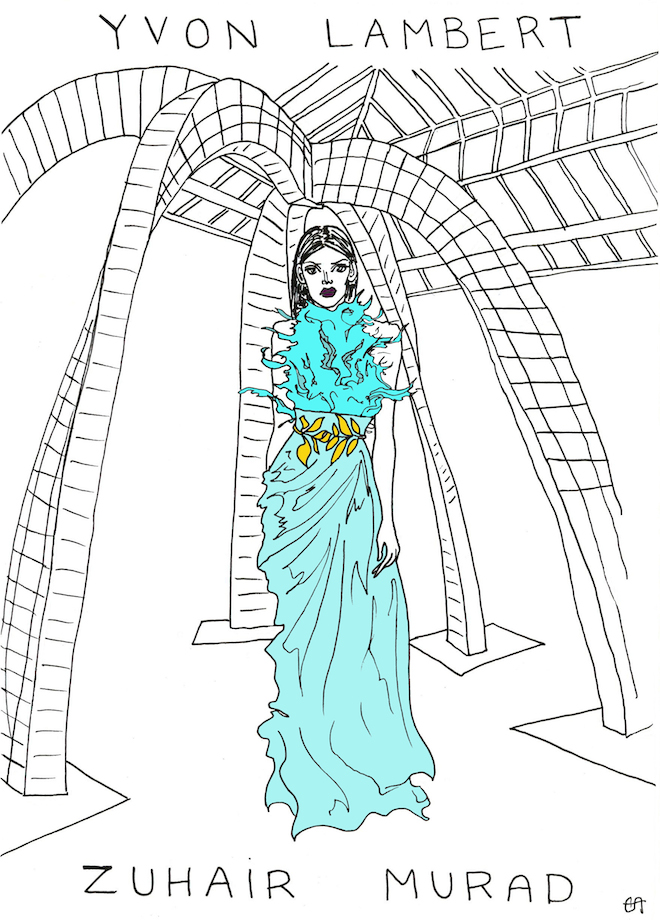
Tags: Anna Freeman, Elizabeth Aaron, Frances Corner, Helen Macdonald, Laurie Penny, Pamflet
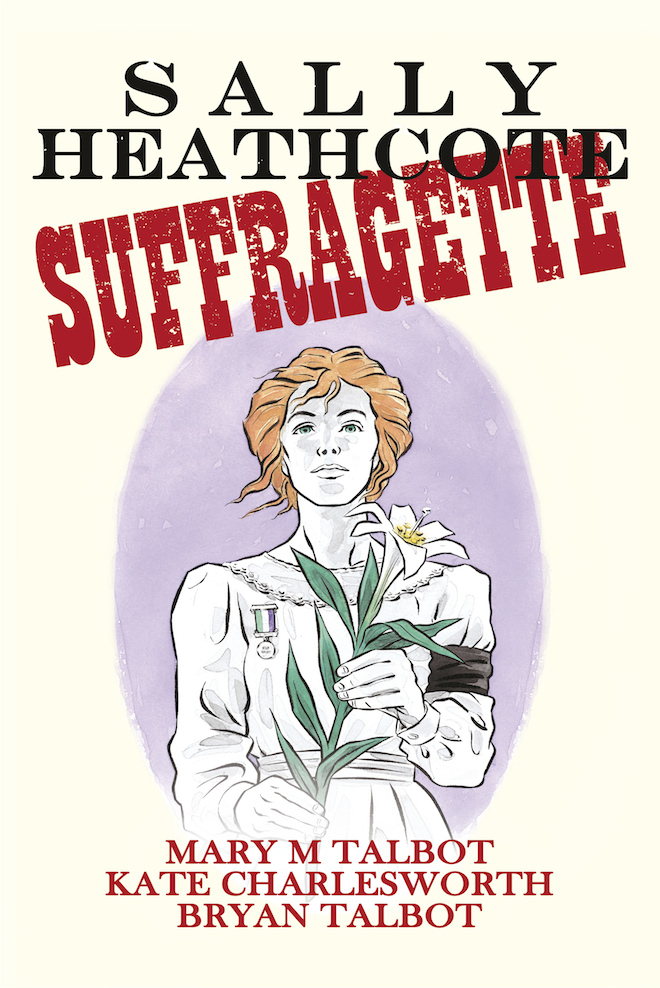
12.06.2014 | Literature | BY: admin
Anna-Marie Fitzgerald and Phoebe Frangoul are the co-editors and co-founders of the London grrrl-zine and literary salon Pamflet. Here they discuss the releases, trends and going’s on in the literary world worth knowing about. Follow them on Twitter and Instagram @Pamflet.
Happy birthday John Lewis and three provocative holiday reads in this month’s Pamflet x Twin books roundup…
Sally Heathcote: Suffragette by Mary Talbot, Kate Charlesworth and Bryan Talbot
Graphic novels are just such good value – great writing AND beautiful visuals to add another dimension to the reading experience – what’s not to like? Sally Heathcote: Suffragette (£ 16.99, Jonathan Cape) by Mary Talbot, Kate Charlesworth and Bryan Talbot tells the story of a young working class woman who becomes part of the suffrage movement and rubs shoulders with its biggest personalities – the Pankhursts and Emily Davison – and some others I hadn’t heard of before.
Much is made of the often bitter infighting between the various factions of fourth wave feminists, in particular the undignified way it can play out on social media, so in a funny way it’s quite reassuring to discover, on reading Sally Heathcote: Suffragette, ‘twas ever thus. Personality clashes and petty jealousies existed between the leading proponents of the suffragette movement, but in no way does that take away from their astonishing achievements – in fact a bit of healthy dissent amongst the troops probably helped strengthen their cause – a lesson that should give fourth wavers heart.
Alongside Sally’s story, there’s a parallel narrative that traces the developing suffrage movement, from the early days of pamphleteering and disrupting public meetings, to the more hardcore acts of civil disobedience. The power and passion of the campaign is vividly brought to life by the dynamic illustrations, nowhere more effectively than in a particularly brutal series of drawings that drive home the horror and humiliation of the force-feeding that the suffragettes endured in prison. There’s a twist in this tale that’ll hopefully leave anyone who ‘didn’t get round’ to voting in the recent elections feeling suitably ashamed.
A Very British Revolution: 150 Years of John Lewis by Jonathan Glancey
Anyone who’s stepped into the hallowed halls of John Lewis and given themselves up to its comforting, mum-like embrace will appreciate that 2014 is a significant year for this national treasure. JL is celebrating its 150th birthday with special edition products, by opening up the roof terrace on the Oxford Street building to the public (it’s previously been an oasis for JL partners) and with the publication of A Very British Revolution: 150 Years of John Lewis (Laurence King, £20).
While this is pretty much a bible for JL obsessives, tracing as it does the evolution of the brand from its birth in 1864, it’s much more than that – it’s a social history, a study in Englishness. For we are, after all, a nation of shopkeepers and no one fits that description more accurately than John Lewis himself, the archetypal self-made man. We learn how the orphaned John was apprenticed to a draper, found his way to London and built up his own business slowly but surely (in contrast to the flashier William Whiteley down the road). He had a sad romance (his beloved’s family considered him too lowly a prospect), before eventually marrying Eliza Mills, one of the first female undergrads at Cambridge and he ruled his kingdom with a stern, firm hand.
John Lewis’ personal and professional story is told against a fascinating backdrop of British history, from the Victorian era’s energy and confidence, though the suffrage movement, the general strike, two world wars, the post-war rebuilding period and the social revolution of the sixties to the London 2012 Olympics. Art, architecture, fashion, technology and politics play their part in this story and it’s beautifully told through illustrations, photographs and Jonathan Glancey’s crisp, insightful prose.
The Empathy Exams: Essays by Leslie Jamison
Iowa Writers’ Workshop was immortalised in Girls series two and The Empathy Exams (Granta, £12.99) is an example of how it’s reached cult-TV-reference-status. Course alumnus Leslie Jamison writes essays in the way (it seems) that mostly only American writers have the space to do and in her first collection she proves herself a mistress of the form. She meditates on her subjects – the wounded, the wrongly accused, the heartbroken, and the downright wild – with intense curiosity and wonder. Universal themes emerge from the pieces, but her experiences and writing style are exclusively those of a twenty-something woman and she might confidently reference The Lost Boys in one breath and a classical philosopher in the next. This mix of low and high cultures, contemporary and ancient, intimate and public makes her writing and subjects shockingly fresh and new. Think Sloane Crosley in a deep and contemplative email exchange with Susan Sontag.
Tags: A Very British Revolution: 150 Years of John Lewis, Pamflet, Sally Heathcote: Suffragette, The Empathy Exams: Essays by Leslie Jamison
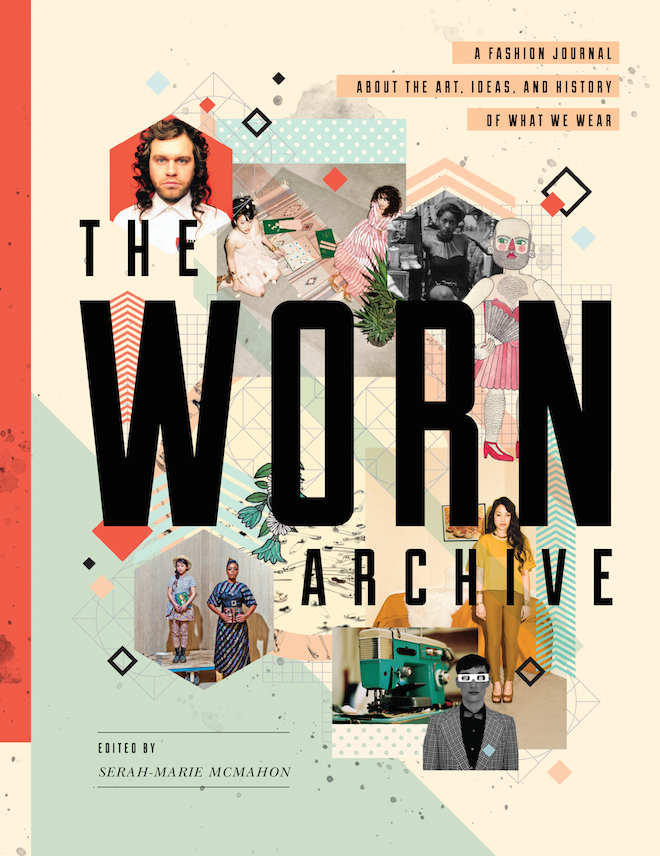
08.05.2014 | Literature | BY: admin
Anna-Marie Fitzgerald and Phoebe Frangoul are the co-editors and co-founders of the London grrrl-zine and literary salon Pamflet. Follow them on Twitter and Instagram @Pamflet. Here they recommend two fashion and one fiction title in their May reading roundup.
Animals by Emma Jane Unsworth (Canongate, £12.99)
Gwendoline Riley, Jean Rhys and Dorothy Parker have all successfully captured that extra special, urban-woman ennui in their fiction at various points in the past and present. Their heroines drink too much, stay out late and know those heady hours of the night when you can say whatever you want and choose not to remember in the morning. With her second novel Animals Emma Jane Unsworth explores that ennui for every twenty-first century girl who’s experienced a toxic emotional mix of failure, overindulgence and disappointment.
Its premise seems conventional – call centre worker and wannabe writer Laura is 31, engaged to earnest and dreary pianist Jim, and isn’t ready to settle down yet – will they or won’t they make it to the altar? But the real story takes place in the words spoken and the rounds of drinks shared with her best friend and flatmate Tyler over several months in Manchester. Their friendship is founded on countless nights out when they either get ‘blackout-drunk’ or ‘wedding-drunk and almost dancing’ and the afternoons afterwards, when they dissect their hazy memories and drink their way through the darkest of hangovers. Together they refuse to grow up – at least in any conventional sense – and their BFF relationship is sweetly reassuring in a cynical world.
Animals looks like a New Order record, its narrative fuelled by cheap white wine, the non-logic of the always-intoxicated and the sensuously evocative language of a writer who’s been there. I tumbled along on Laura and Tyler’s crazy nights out and laughed with them (mostly), but it’s ultimately a sobering and tender read. I can imagine that right now, somewhere, staggering around Manchester are a very real Tyler and Laura with empty purses and cracks in their phones.
The Worn Archive edited by Serah-Marie McMahon with a foreword by Jane Pratt (Drawn and Quarterly, £19.99)
‘The fashion industry is riddled with problems … Worn is how I respond to that. Because why not make fashion the way I love it, celebrating the good parts rather than spending time pointing out the bad ones?’ Editor Serah-Marie in her introduction
Canadian biannual journal Worn is serious about fashion but knows how to have fun. Even if you already have every issue of the magazine via mail order you’ll want this gorgeous collection of the highlights from its first eight years in print. Every feature is as thoughtfully designed and illustrated as it is researched and written and there are pieces on fashion theory and textiles, the history of iconic garments (‘Safety Dance: How the safety pin became a revolutionary fashion accessory’), personal memoirs (‘Make Me Real: important style lessons I learned from Courtney Love’) and practical guides to doing your laundry and knotting a tie (more complicated than you might think).
Worn fashion shoots are always more about ideas than labels and for reasons of budget and practicality they often use friends who are fashion-makers rather than models. Flicking through the spreads and features makes for a satisfying reader experience because all kinds of woman are represented on its pages: that’s just what the world of Worn looks like. Here’s to eight more years of clever, provocative and fashionable thinking.
GLOSSY BOOK OF THE MONTH: Shoetopia: Contemporary Footwear by Sue Huey and Kathryn Jenny (Laurence King, £24.95) showcases the work of forty classic and upcoming international shoe designers from France, Italy, USA, Finland, Denmark, the UK and beyond. Each label’s profile is illustrated with highlights from their latest collection. It’s a riot of complicated laces, pretty bows, delicate buckles and out-there heels that shows the breadth of talent in contemporary cobbling. There’s room for some of the most iconic styles of the past few years including Prada’s fiery stilettos, Sophia Webster’s cute booties and Camilla Skovgaard’s ankle-challenging wedges.
Tags: Emma Jam Unsworth, Pamflet, Shoetopia, Worn Archive

07.04.2014 | Literature | BY: admin
Anna-Marie Fitzgerald and Phoebe Frangoul are the co-editors and co-founders of the London grrrl-zine and literary salon Pamflet. Here they discuss the April releases, trends and going’s on in the literary world worth knowing about. Follow them on Twitter and Instagram @Pamflet.
‘X or Y: which is which?’ begins X vs Y: A Culture War, A Love Story (Abrams Image, £11.99) by New York-based sisters and writers Eve and Leonora Epstein. They suggest that you choose between ‘DM boots and foam footwear’ if you’re not sure where you belong (particularly if you were born in the ‘grey area’ between 1979-1984). This dip-in and out-able scrapbook of 90s and 00s nostalgia is also a memoir of intergenerational sisterhood and reads like the very best blogs: deeply personal, witty and full of pleasing references. Packed with cute infographics, tables and helpful graphs charting the defining pop cultural moments of our times, this is a reminder of everything that’s great about generation grey.
I’ve been cycling around London long enough to know that pencil skirts are for walking-to-work days only, I don’t care about helmet hair and I still have a lot of time for a good bike book. The Girls’ Bicycle Handbook by Cyclechic’s Caz Nicklin (Quercus, £14.99) which is practical, thorough and filled with bike-love is the first one I’d unreservedly recommend to all would-be cyclists. There are handy how-to guides, advice on what to wear, lists of what kit you actually need and interviews with every hip bike lady on the scene. The clear layout means that you can quickly find the relevant bits to your riding needs and it even answers potentially embarrassing questions we all need the answers to such as ‘can I cycle with pets?’ and ‘what about wearing heels?’ TGBH should be the final persuader for anyone who’s teetering on the brink of riderdom.
Amazing Babes: A Picture Book for Kids and Adults by Eliza Sarlos and Grace Lee (Scribe, £12.99) is a hardback you’ll nobly buy as a gift for the child in your life and want to keep for yourself. It might look like a pretty picture book with cool alt-celebs in (see the portraits of Tavi, Kathleen Hanna and Malala) but that façade masks the fact that it’s really a dressed-up feminist-indoctrination tool for schoolchildren.
And now for something delicious: The Bloomsbury Cookbook by Jans Ondaatje Rolls (Thames & Hudson, £24.95) is the literary equivalent of a fantasy dinner party with the writers, poets, painters and philosophers who comprised the Bloomsbury Set. Even if you think you know everything there is to know about this bohemian bunch – Virginia Woolf and Vanessa Bell, E.M. Forster, Dora Carrington and Lytton Strachey among others – Rolls’ book offers a completely fresh insight into their characters and appetites – both gastronomic and otherwise.
Through recipes used by individuals in the group, photographs, illustrations and extracts from letters, she brings to life that fascinating, vibrant world and its creative inhabitants who were so determined to throw off the stuffy restrictions of Victorian society in every aspect of their lives, from their relationships to the work they produced and the food they served.
From reading their novels and memoirs about the Bloomsbury set, I’ve always had a vague impression that they were a rather earnest lot but the beauty of this book is it’s given me a totally different understanding of these complex personalities. They were the foodies of their day and although most of them didn’t actually cook (until after the First World War, anyway), they loved to eat. They championed exotic ingredients like garlic and avocados and loved nothing more than to engage in stimulating, intense conversation over ‘lingering breakfasts’ and ‘painting lunches’. From the anecdotes in this book it sounds like they would have been fabulous company.
I’ve been dipping into the various chapters of The Bloomsbury Cookbook and it’s inspired me to try out a few of the recipes and revisit some of my favourite novels, from Mrs Dalloway to A Passage To India. Oh and every penny of the profits are being donated by the author to the Charleston Trust which looks after Vanessa Bell’s house, Charleston – an incredibly generous gesture. So by buying this beautiful book, you’re also helping preserve a piece of our cultural heritage for years to come.
Glossy book of the month: 100 Ideas that Changed Street Style by Josh Sims (Laurence King, £19.95) is the latest volume in the essential 100 Ideas graphic/art/design series. Each idea gets its own double-spread, capturing the subcultures that have inspired what we’ve worn over the decades and joining the style dots from concept to market stall to wardrobe to catwalk. It’s the kind of book you can get lost in so start with your favourite street styles (ganguro, androgyny, rave: they’re all here) and see where they take you.
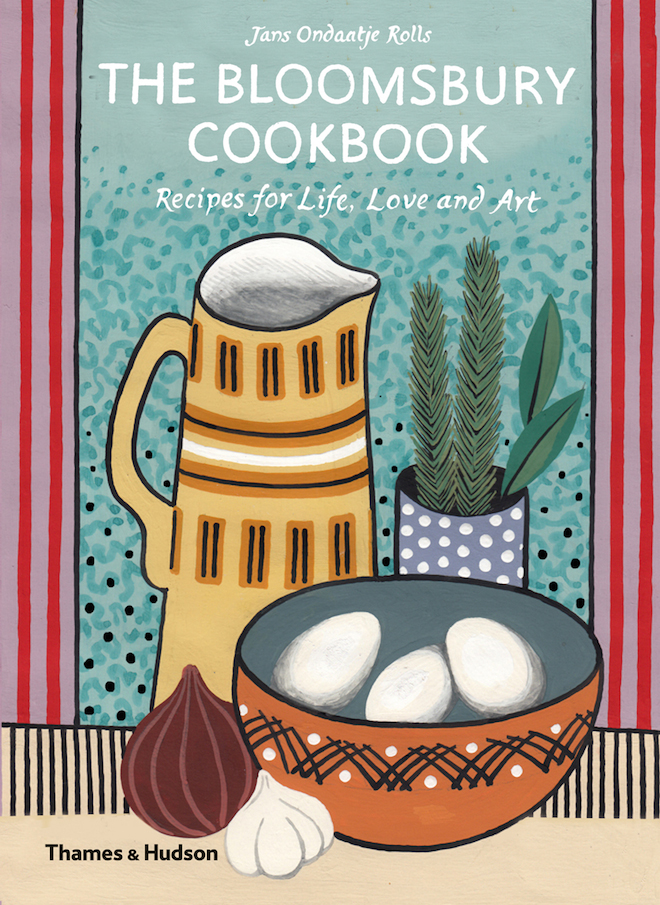
Tags: 100 Ideas that Changed Street Style, A Love Story, Amazing Babes: A Picture Book for Kids and Adults, Pamflet, The Bloomsbury Cookbook, The Girls’ Bicycle Handbook, X vs Y: A Culture War
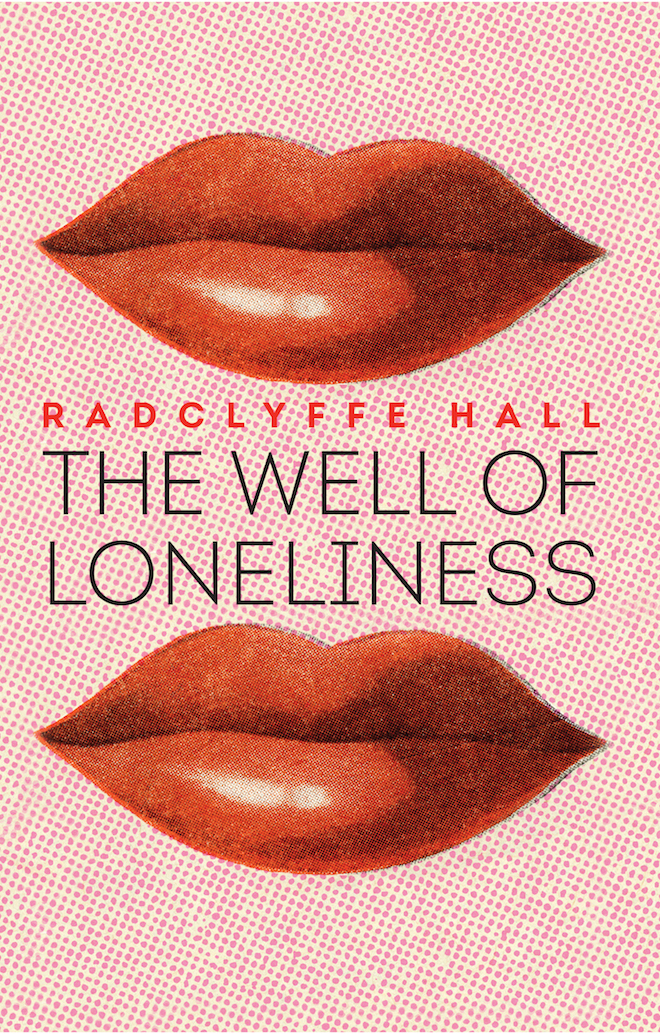
10.03.2014 | Literature | BY: admin
Anna-Marie Fitzgerald and Phoebe Frangoul are the co-editors and co-founders of the London grrrl-zine and literary salon Pamflet. Here they discuss the releases, trends and going’s on in the literary world worth knowing about. Follow them on Twitter and Instagram @Pamflet.
This month’s literary picks include the reissue of a controversial classic and a very modern love story…
Naomi Wood’s Mrs Hemingway (Picador, out now) tells the story of Ernest Hemingway’s four wives in a series of flashbacks and interlocking first person narratives. The macho, huntin’ shootin’ fishin’ Hemingway is depicted by turns as selfish, needy, childish and charming, a man who loved being married, just not always to the same woman. Naomi Wood skilfully creates the conversations that might have played out between Ernest and his wives, making them feel totally authentic. You can feel his first wife Hadley struggling with her jealousy as Ernest becomes involved with her best friend, Pauline ‘Fife’ Pfeiffer, trying to be bohemian and mature (and French!) about the situation. Then chic, sophisticated, wealthy Fife, so confident that she’s different to Hadley, finds to her horror that she loses Ernest to the tough, independent writer Martha Gellhorn. And she in turn loses him to a fellow journalist named Mary Welsh.
Hemingway and contemporaries like F Scott Fitzgerald fictionalised their own lives while they were living them, so it feels totally natural to read this imagined account of Hemingway’s wives. Naomi Wood has given voices to the shadowy figures who played a vital role in helping Hemingway become the titanic figure of twentieth century literature that he was.
2014 sees the reissue of Radclyffe Hall’s controversial lesbian novel, The Well of Loneliness (Hesperus Classics, out now). Subject to a landmark obscenity trial when it was first published in 1928 and banned for twenty years, the Sunday Express said of Hall’s book, “I would rather give a healthy boy or a healthy girl a phial of prussic acid than this novel”, which naturally made everyone want to read it. The heroine, Stephen Gordon – so named because her parents longed for a boy – isn’t a particularly sympathetic character. She’s abrasive and self-absorbed, but when you consider the stifling society she was born into and her painful isolation as she discovers her nature as an ‘invert’ (a term used at the time to describe homosexuality), you can see why. Stephen’s wealth allows her a certain amount of freedom – she can indulge her love of masculine attire, travel and live independently – but ultimately because she is attracted to women, she is an outcast.
In the centenary year of the outbreak of World War 1, it seems pertinent to revisit this novel, as it is during her time driving ambulances on the Western Front that Stephen discovers other women like her and falls in love. WWI saw huge social changes in Britain and marked the end of the gilded Edwardian age. As well as the colossal losses that blighted the lives of so many, there were gains for women – the vote and a new freedom to work – that shaped Britain as we know it. The Well of Loneliness might not be a ‘fun’ book, but like The Ragged Trousered Philanthropists and The Female Eunuch, it’s a very necessary one. We have three copies of the new edition to give away so visit us at Pamflet to find out how to win one.
Zoe Pilger’s Eat My Heart Out (Serpent’s Tail, out now) is an astonishing debut that gives a frightening insight into the lives of a new lost generation who are facing a bankrupt future. It reads like a drunken late night illegal cab ride, recklessly careering through the London of your early twenties. Everyone’s a poet or a performance artist, there’s lots of bad drugs and nasty sex in squalid flats paid for by indulgent relations. Bleak and brilliant, Pilger ruthlessly flays the social mores of the liberal intelligentsia to the bone. Protagonist Ann-Marie feels like a Holden Caulfield for the twenty-first century and a natural successor to modern literature’s anti-heroes – nihilistic, narcissistic, gloriously deranged, bleak and bright by turns. This is an anti-love story, brutal and brilliant.
Helen Walsh is one of Pamflet’s favourite literary bad girls. She writes about complex women in difficult circumstances, giving a voice to characters who we might only ever get a brief glimpse of in contemporary literature otherwise: a single mother cursed with postnatal depression in Go to Sleep, a Sri Lankan-Irish girl coming of age to an acid house soundtrack in Once Upon a Time in England and Liverpudlian prostitutes in the notorious Brass. In her new book The Lemon Grove (Tinder Press, out now) forty-something Jenn is on a doomed family holiday in intoxicating surroundings and it’s Walsh’s most fearless, tense and tightly written work yet. After gulping this down, I was pretty sure that she’s the kind of lady I’d like to put the world to rights with over several glasses of red wine (Tinder Press).
Two debut short story collections to look out for this month are Molly Antapol’sThe UnAmericans (Fourth Estate, out now) and The Rental Heart and Other Fairytales (Salt Publishing, 15 March) by Kirsty Logan. For me the most satisfying short stories should take the bigger picture and shrink it into a perfect miniature or snapshot and both of these do just that. Logan’s occasionally surreal and gorgeous tales defy categorisation and Antapol’s stories of fathers and daughters and distant homelands offer many thought-provoking reading pleasures.
Our glossy book of the month is Fashion Africa (Jacaranda Books, out now) by designer and Director of the Africa Fashion Guide Jacqueline Shaw. An overview of where the continent’s industry is right now, it provides a dazzlingly illustrated portfolio of African textiles, footwear and clothing through practitioner profiles and interviews.
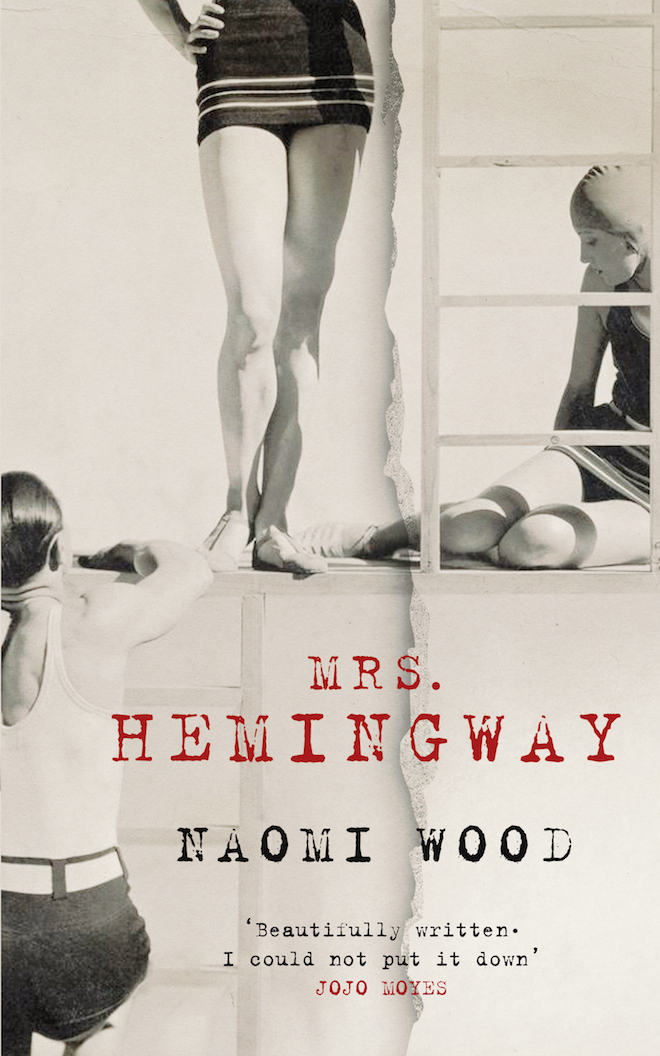
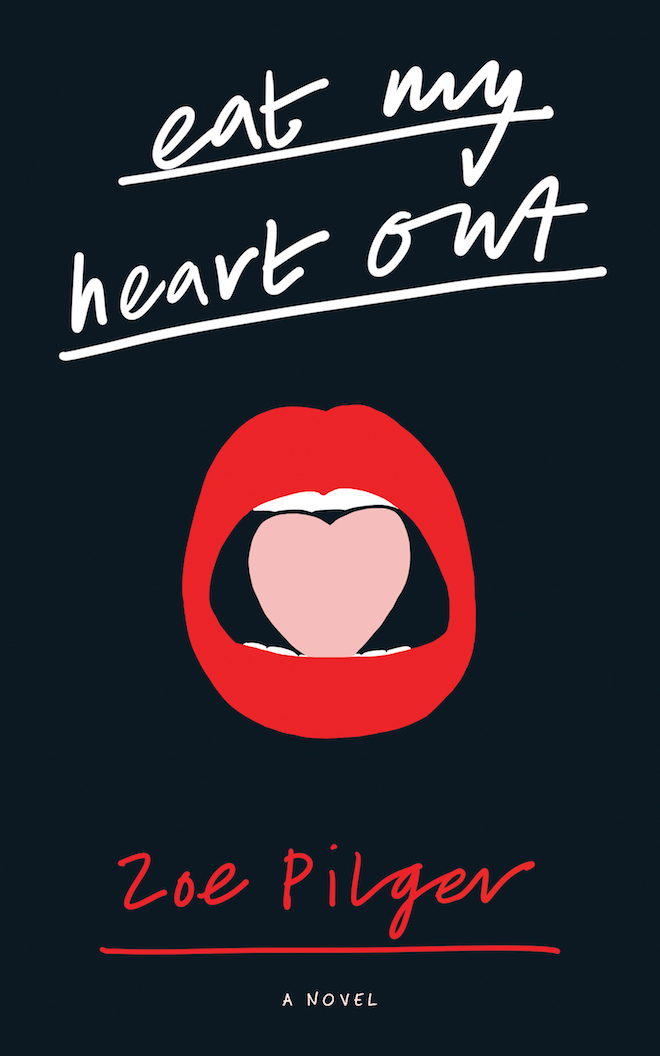
Tags: Eat My Heart Out, Fashion Africa, Mrs Hemmingway, Pamflet, The UnAmericans, The Well of Loneliness
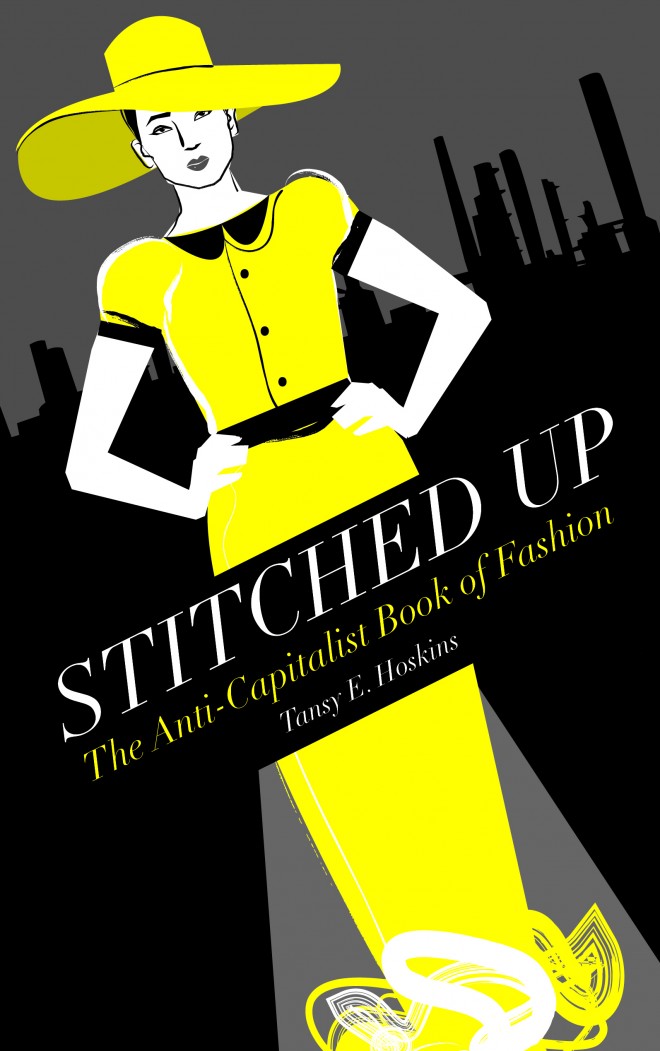
07.02.2014 | Literature | BY: admin
Anna-Marie Fitzgerald and Phoebe Frangoul are the co-editors and co-founders of the London grrrl-zine and literary salon Pamflet. Here they discuss the releases, trends and going’s on in the literary world worth knowing about. Follow them on Twitter and Instagram @Pamflet.
We can never get enough of angry young women at Pamflet, so happily we have two righteous books to recommend this month. They also happen to be about the politics behind our two major obsessions (music and clothes) too.
Words Will Break Cement: The Passion of Pussy Riot (Granta Books) by Moscow-based journalist Masha Gessen (brought forward from its March publication date because of Nadya Tolokonnikova and Maria Alyokhina ‘early’ release) is the story of Russia’s most famous ex-political prisoners. In the past couple of years their iconic balaclava-ed images have inspired rebel-artists across the world, adorned greeting cards and been referenced by the masked cast in the poster for last year’s all-women Julius Caesar at the Donmar.
Gessen investigates the young women behind the cultural phenomenon, spending time with Nadya’s husband and father and corresponding with them incarcerated women in their respective prisons. If you saw the Punk Prayer film and got the Let’s Start a Pussy Riot art-book (which featured contributions from Meadham Kirchhoff and Yoko Ono amongst many others), then you really need to read this in-depth look at what it means be young, fearless and angry in the new Russia.
Stitched Up: The Anti-Capitalist Book of Fashion (Pluto Press) by writer and activist Tansy E. Hoskins and wonderfully illustrated by Jade Pilgrom will be launched on London Fashion Week Eve (next Thursday 13 February). Hoskins manages to convincingly bring the two Karls (Marx and Lagerfeld) into this passionate and radical critique of the fashion industry. Writing from the perspective of an outsider who believes it ‘truly is glorious and enthralling as well as exasperating and terrible,’ her stance will be familiar to anyone who’s been tempted by the quick fix rush of a high street bargain only to sink into shameful remorse immediately afterwards. In Stitched Up Hoskins might be dazzled by fashion, but that doesn’t stop her from asking critical questions around the provenance and manufacture of clothing and the exploitation of fashion workers from the factory floor to the catwalk. Luckily she has plenty of answers to suggest too, and in this theoretical, but enjoyably journalistic text, she confidently picks up the campaigning baton from her fash-critic foremothers such as Elizabeth Wilson and looks optimistically towards the future.
ALSO OUT THIS MONTH: Costume historian Amber Jane Butchart’s Fashion Miscellany is a darling collection of short essays and asides on style, tailoring and taste. On and off the page Amber lives her craft and here she always wears her expert knowledge lightly, packing this neat volume full of treasures. Reading it is like digging through a junk shop jewellery box: lots of fun.
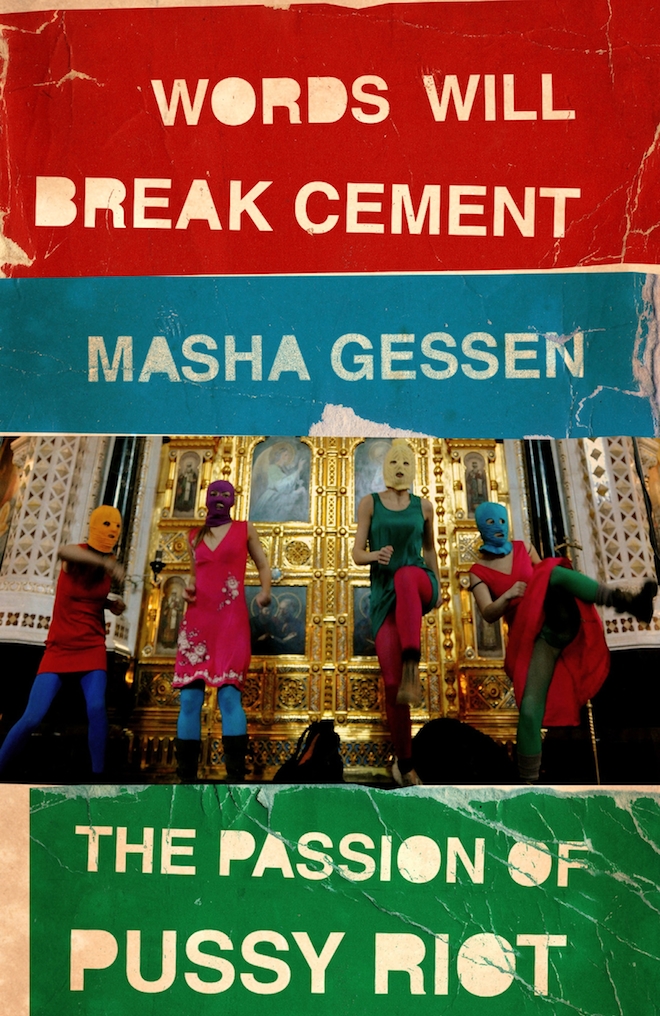
Tags: Books, Pamflet, Pussy Riot
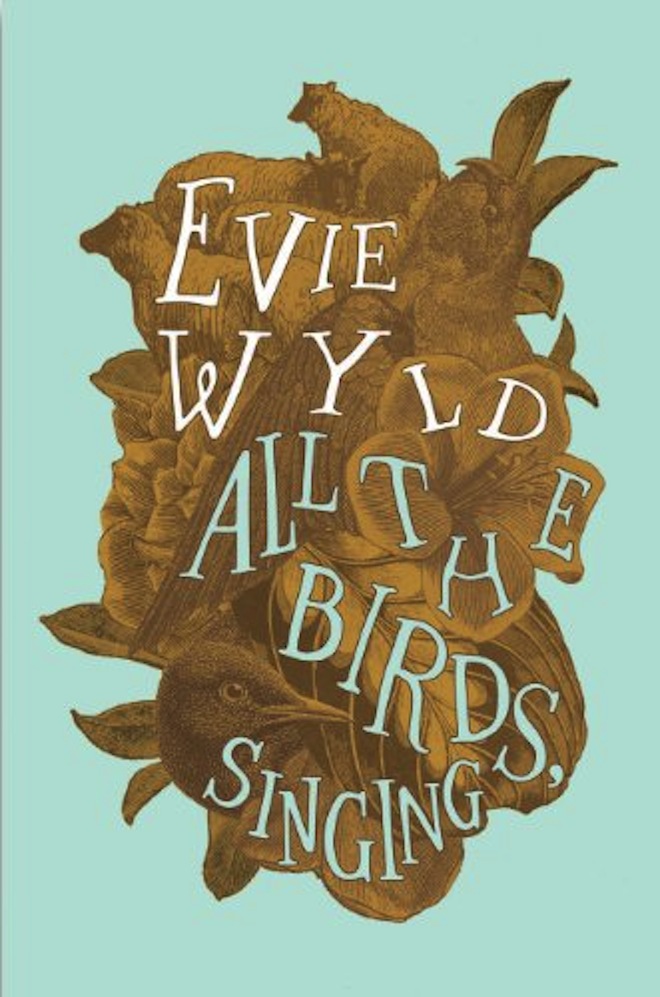
05.08.2013 | Blog , Culture | BY: Mariella Agapiou
After their sell-out event, How Bazaar! in July, the Pamflet girls are back at the Dome Room tonight, hosting another summer salon. BIRDS IN THE WOODS sees Katie Kitamura, author of Gone to the Forest, and Evie Wyld, author of All the Birds, Singing, reading from their latest works. Katie, a New York-based art critic and Granta Best Young British Novelist as well as South-Londoner Evie will also take part in a Q&A after their readings.
The second half of the salon will take the form of a book club discussion, with Jean Rhys’ Wide Sargasso Sea as the hot topic. The book in question is a Pamflet favourite, inspired by Jane Eyre and was originally published in 1966.
The Summer Salon takes place at The Dome Room at Drink, Shop & Do on 9 Caledonian Road, Kings Cross, N1 9DX, London, from 7-9pm tonight, Monday August 5. The next salon, GENERATION, takes place on September 18 with Judith Mackrell, author of Flappers: Six Women of a Dangerous Generation.
pamflet.com
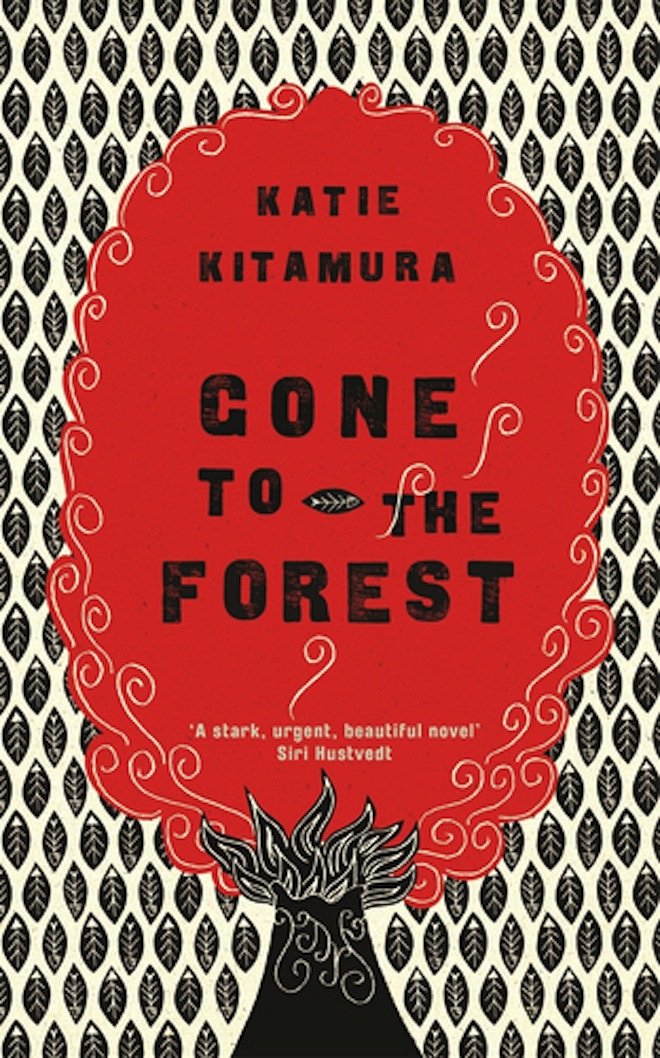
Tags: Drink, Evie Wyld, Katie Kitamura, Pamflet, Shop & Do
![]()

















 Twitter
Twitter
 Tumblr
Tumblr
 YouTube
YouTube
 Facebook
Facebook
 Instagram
Instagram
